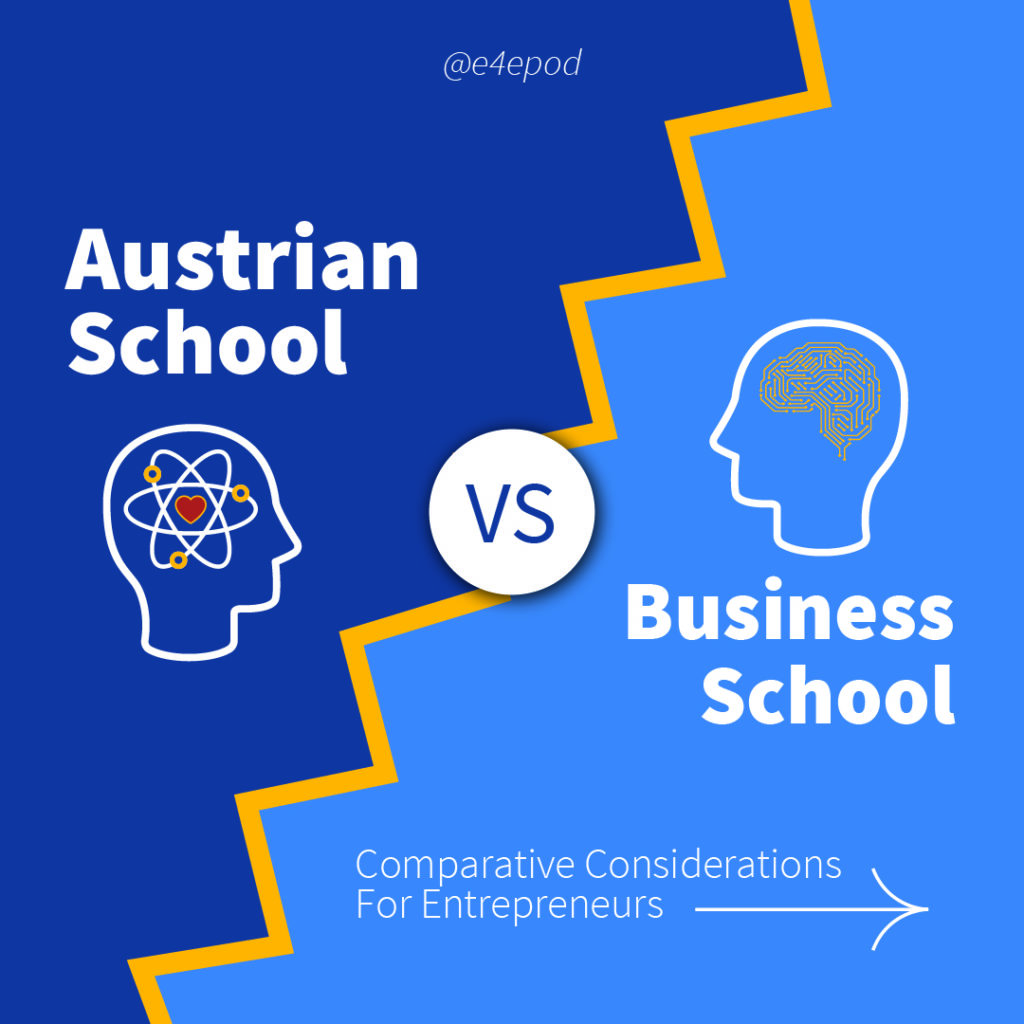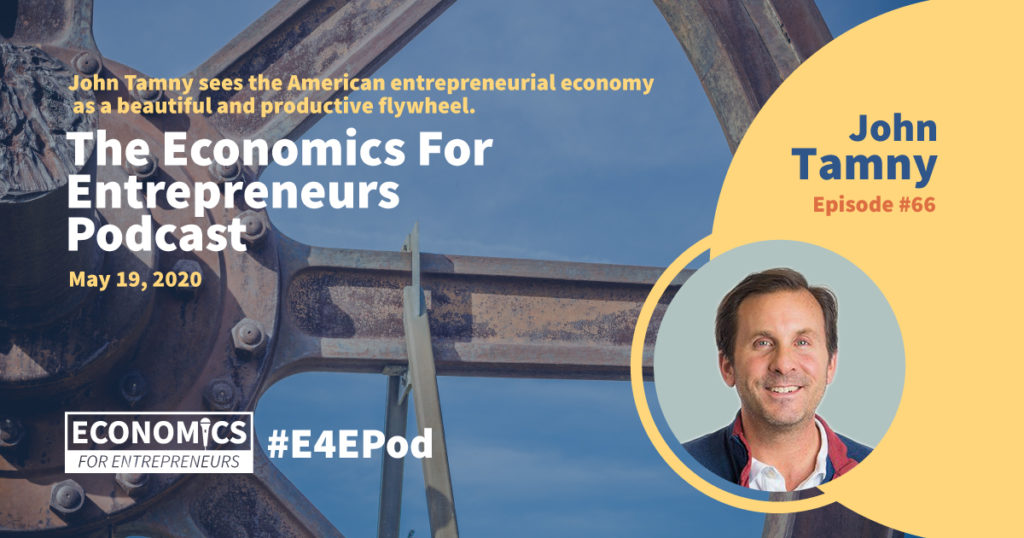Why Do Entrepreneurs Miss Market Opportunities?

In his salient book, Capitalism, Socialism and Democracy, Joseph A. Schumpeter explained that introducing new methods of production and new commodities to the market is inconceivable under perfect competition. But the reality of real-world competition is that some individuals capture opportunity and others miss it. Some entrepreneurs have more knowledge about market conditions, and others have less knowledge. Some react and move quickly, and others react slowly. Businesses do not just fail—they miss entrepreneurial opportunities in the market, failing to react just in time to consumer changes.
Because Austrians conceive of the market as a process and competition as inspired by market participants, entrepreneurial innovation is the only way for a firm to survive. The notion of missed opportunities is rooted in Friedrich Hayek’s focus on knowledge and Israel Kirzner’s interaction between the nature of the market and discovery. The fact is, you don’t know what you don’t know, until you do know. Then what do you do with the new knowledge?
In an era of constant change in consumer preferences —from conventional retail to omnichannel retail, for example -many firms will undoubtedly miss entrepreneurial market opportunities because they are not learning from market signals. The question is: What did you learn, and when did you learn it, after conventional consumers turned into omnichannel consumers and you realized what they want most?
Many businesses do not just fizzle out—they do not learn the Austrian view of market, competition, and knowledge and, therefore, miss market opportunities. Chains and established firms used old methods in a new competitive market and disregarded the metamorphosis of consumers from conventional to omnichannel—from ones who go to a brick and mortar to ones who access multiple sites (i.e., website, social media, your brick and mortar via phone, desktop, etc.) to purchase what they want. These businesses did not learn from past experience how to improve their market position. They did not heed the market signals the consumer gave them to cater to their newly emerging preferences.
We are now living in the Schumpeterian era of innovation and quick-to-market activity, which is the consequence of omnichannel consumerism. For entrepreneurs who are not on this innovation wave, providing goods and services at the time and in the manner the consumer wants them, it is an era of missed opportunities.
What is the real function of the entrepreneur in a market economy? Schumpeter raised a significant point in this context that needs revisiting. The function of the entrepreneur is to be the disruptor–innovator. When has this been forgotten or misconstrued? Schumpeter made it very clear that entrepreneurs have a vital function in the market economy. Their market actions are to find new methods and novel ways of combining and recombining resources to meet the subjective valuation of the consumer—omnichannel or otherwise. Schumpeter said,
…the function of entrepreneurs is to reform or revolutionize the pattern of production by exploiting an invention or, more generally, an untried technological possibility for producing a new commodity or producing an old one in a new way, by opening up a new source of supply of materials or a new outlet for products, by reorganizing an industry and so on.
Ludwig von Mises, Kirzner, and Schumpeter agreed that market adjustments are based on consumers’ perceptions, taste, and preferences. These changes might account for why many firms close their doors and discontinue their services. What does this mean for existing market players who may otherwise miss opportunities during these rapid market adjustments? The panacea for many is to follow the market changes so that you do not miss entrepreneurial market opportunities.
Market distortions and economic interventionist policies made by the government can make these market opportunity signals foggy and unclear, which is why you must consider following the adjustments created by consumer valuations. To receive the right signal and eliminate the fog, consider the following reasons why entrepreneurial leaders miss market opportunities:
- Entrepreneurs fail to see what consumers want.
- Entrepreneurs do not co-create with their consumers.
- Entrepreneurs do not foresee the consumer transition (from conventional to omnichannel).
- Entrepreneurs have not developed feedback loops between themselves and their customers (i.e., business to consumer or business to business).
- Entrepreneurs have not learned from previous experience new ways of product/service bundling in new market conditions.
- Entrepreneurs do not combine and recombine resources just in time.
- Entrepreneurs cease searching for discoveries within and between new or existing markets.
- Entrepreneurs have not acknowledged that entrepreneurs and consumers have incomplete and sometimes error-prone knowledge.
- Entrepreneurs remain sticky about what works and neglect consumer-oriented just-in-time opportunities.
- Entrepreneurs miss relationships with consumers; they do not ask questions, learn, and respond appropriately.
The correct timing of innovation is never clearly signaled. Entrepreneurs do not know the future of the market so they can’t act “just-in-time”. Why? Because, according to Kirzner, other entrepreneurs are consistently making entrepreneurial errors as they pursuevarious ends, consequently changing others’ plans. That is, every market participant has error-prone knowledge and is subject to missed innovations and opportunities.
How can entrepreneurs rid themselves of knowledge that contains errors and avoid foggy market signals? Little bits of knowledge are scattered everywhere, making it possible for some entrepreneurs to get it right and adjust. Successful entrepreneurs judge the market correctly, as Kirzner reminded us. But numerous others judge the market wrong. They do not correctly or clearly anticipate what was going on through the fog. It is errors in judgment, fogginess, and inability to see what is ahead that leads to missed entrepreneurial market opportunity.
That knowledge is prone to error and that market sends distorted signals to entrepreneurs (through no fault of their own) are not the result of market failure but a result of market adjustments that result in missed market opportunities. The idea of missed market opportunities in not the same as opportunity costs. Missed market opportunities occur after learning something new, adjusting to consumer valuations and applying the new knowledge. The omnichannel consumer is changing the market. Entrepreneurs—the disruptors/innovators—must alter their market approach. Those who lag behind market changes will miss market opportunities. Remember, the consumer is entrepreneurial, too!
Entrepreneurs, in the Austrian sense of the term, must find the innovative wave and jump in just in time to reap the benefits of market activity from missed market opportunities based on previous consumer interactions. Market–oriented entrepreneurs realize that they have a small window to adjust, employ innovations, and capture conventional consumer valuation while simultaneously reaching the omnichannel consumer—just in time.







Responses